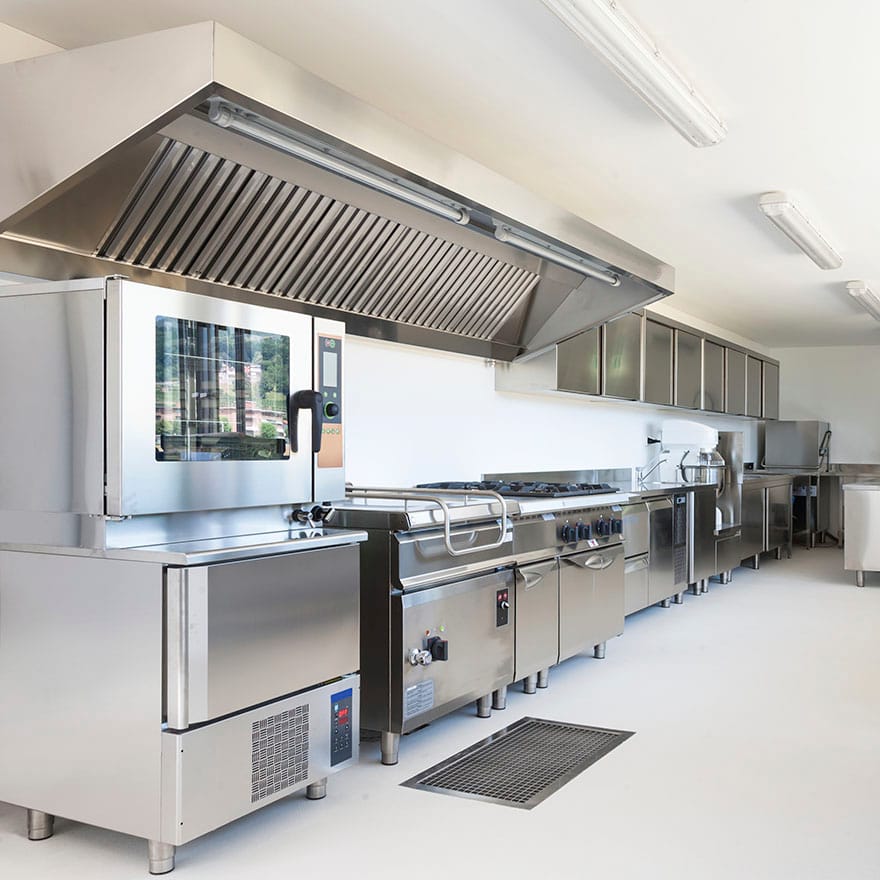Commercial appliances form the backbone of food service operations, pivoting in food preparation, cooking, storage, and serving. From industrial ovens and refrigerators to specialized equipment like grills and fryers, these appliances are essential for ensuring efficiency, consistency, and quality in commercial kitchens. Consequently, occasional services like walk in cooler repair are often necessary. In this article, we’ll delve into the indispensable role of commercial appliances in food service businesses and their contributions to productivity and quality enhancement.
Efficiency and Speed
A key advantage of commercial appliances is their capacity to handle high-volume production while maintaining consistent performance under demanding conditions. Unlike residential appliances, designed for occasional use, commercial appliances are built for continuous operation in busy kitchens. This durability and reliability streamline operations, reduce downtime, and meet the fast-paced environment’s demands.
Consistency and Precision
Commercial appliances are crafted to deliver precise temperature control, cooking times, and consistent results, ensuring uniform quality and flavor in every dish. Whether it’s a convection oven baking evenly, a griddle searing uniformly, or a refrigeration unit maintaining optimal storage conditions, these appliances are designed for reliable performance. This consistency is crucial for meeting customer expectations and building a reputation for quality in the food service industry.
Safety and Compliance
Commercial appliances must meet stringent safety and sanitation standards to ensure food safety and regulatory compliance. From NSF certification to UL listing, these appliances undergo rigorous testing and inspection to verify their safety and reliability. This adherence to safety standards helps businesses maintain a hygienic environment, minimize foodborne illness risks, and comply with food handling, storage, and preparation regulations.
Versatility and Adaptability
Commercial appliances come in various sizes, configurations, and capacities to meet the diverse needs of different food service establishments. Whether it’s a compact appliance for a small cafe or a high-capacity range for a busy restaurant, commercial appliances offer versatility and suit various kitchen layouts, menu offerings, and production volumes. This flexibility allows businesses to customize their kitchen setups for optimal efficiency, workflow, and space utilization.
Innovation and Technology
Technological advancements have introduced innovative features and functionalities in commercial appliances, enhancing performance, efficiency, and usability. From touchscreen controls and programmable settings to energy-efficient designs and smart connectivity, modern appliances offer features that improve productivity, reduce operating costs, and simplify operations. For instance, refrigerators often encounter thermostat issues, and you can call commercial freezer repairs Fairfax.
Tips for Organizing and Arranging Commercial Appliances
Efficient organization and arrangement of commercial appliances are vital for smooth operations. A well-organized kitchen layout optimizes workflow and productivity while ensuring safety, cleanliness, and compliance with health regulations.
Assess Your Space and Workflow
Before organizing your kitchen, assess your space and workflow to identify areas for improvement. Consider the kitchen layout, traffic flow, and task sequence involved in food preparation, cooking, and serving. This assessment will help determine the most efficient placement of appliances, workstations, and storage areas to streamline operations.
Create Zones for Different Tasks
Organize your kitchen into distinct zones for tasks such as food preparation, cooking, plating, and cleaning. Equip each zone with the necessary appliances, tools, and supplies to facilitate an efficient workflow. For instance, designate a separate area for food prep with cutting boards and prep tables and another area for cooking with ranges, ovens, and grills.
Group Appliances by Function
Group similar appliances based on their function to create designated workstations and streamline workflow. For example, place all cooking appliances, such as ranges and fryers, in one area and all refrigeration units in another. This arrangement allows kitchen staff to access necessary equipment quickly and efficiently.
Consider Ergonomics and Accessibility
Arrange appliances and workstations to promote ergonomic movement and accessibility for kitchen staff. Ensure appliances are positioned at appropriate heights and angles to minimize strain. Also, leave adequate space between appliances and workstations to allow easy movement, especially during busy periods.
Prioritize Safety and Compliance
Ensure your kitchen layout adheres to safety and compliance standards. Keep appliances away from high-traffic areas and fire hazards. Install proper ventilation and fire suppression systems to prevent heat, smoke, and grease buildup. Additionally, maintain appliances for electrical safety and schedule regular servicing to prevent malfunctions.
Optimize Storage and Shelving
Maximize kitchen efficiency by optimizing storage and shelving. Install shelves, racks, and cabinets near workstations to store frequently used items within reach. Use clear labeling to identify storage area contents and promote efficient inventory management. Consider adjustable shelving to accommodate changing needs and maximize space.
Implement Proper Cleaning and Maintenance Protocols
Establish cleaning and maintenance protocols for optimal appliance performance, longevity, and hygiene. Develop a cleaning schedule that includes daily, weekly, and monthly tasks for cleaning appliances and equipment. Train staff on proper cleaning techniques and schedule routine maintenance checks to identify and address issues promptly.
The Benefits of Investing in Quality Commercial Appliances
Investing in high-quality commercial appliances can significantly impact the efficiency and success of food service operations. Quality appliances offer superior performance, durability, and reliability, reducing the frequency of repairs and replacements. Additionally, they often come with advanced features that enhance productivity and energy efficiency, leading to cost savings over time. By choosing reputable brands and models, food service businesses can ensure their kitchens run smoothly and maintain a high standard of food quality and safety.
Seasonal Maintenance and Preparation
Preparing your kitchen appliances for different seasons is essential to ensure their longevity and performance. For instance, in the winter, make sure your heating appliances are in good condition to handle increased usage. In the summer, focus on maintaining refrigeration units to prevent overheating. Regular seasonal checks and maintenance can help prevent unexpected breakdowns and ensure your appliances operate efficiently throughout the year.
Conclusion
Commercial appliances are vital for the success and operation of food service businesses, contributing to efficiency, productivity, and quality in commercial kitchens. From ensuring consistent cooking results to maintaining food safety and compliance, these appliances are essential for meeting the demands of a dynamic industry.
By investing in high-quality, reliable commercial appliances and staying updated with the latest innovations, food service businesses can optimize their operations, enhance customer satisfaction, and achieve long-term success in the competitive market. If issues arise, don’t hesitate to contact commercial appliance repair Springfield for professional assistance.


